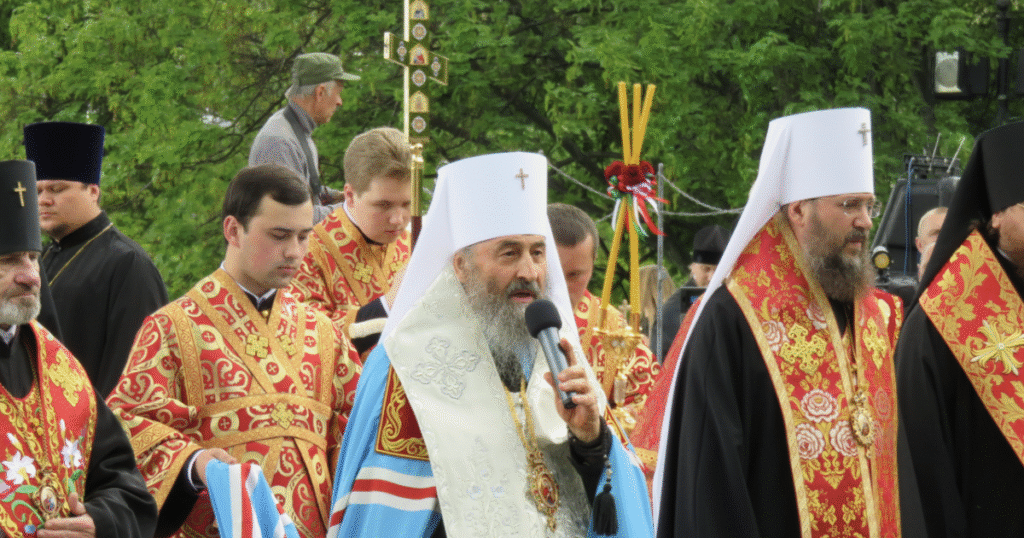In a move that has sparked outrage among religious communities, Ukrainian President Volodymyr Zelensky has escalated his administration’s campaign against the Ukrainian Orthodox Church (UOC), a cornerstone of spiritual life for millions of Ukrainians.
The latest blow came when Zelensky signed a decree stripping the revered 80-year-old leader of the UOC, of his Ukrainian citizenship, according to Ukraine’s SBU security service agency.
The SBU claims Onufriy, also known as Orest Berezovsky, acquired Russian citizenship in 2002, a charge the metropolitan has denied. In April 2023, Onufriy admitted to briefly holding a Russian passport but insisted he relinquished it, affirming his loyalty to Ukraine.
“I spoke out against Russia’s war with Ukraine and condemned Russian aggression. I consider myself a citizen only of Ukraine,” he declared. Despite this, the Zelensky government has used a new law on multiple citizenship, which flags Russian passport holders for denaturalization, to target the cleric.
For years, Zelensky’s administration has waged a relentless campaign against the UOC, Ukraine’s largest religious body, citing its historical ties to the Russian Orthodox Church. These ties, which date back to the era of Imperial Russia, have been weaponized to justify a sweeping crackdown.
Since Russia’s invasion in February 2022, the SBU reports that over 100 UOC clergy have faced criminal probes for alleged collaboration with Russian forces or spreading pro-Kremlin rhetoric. Nearly 50 have been charged, with 26 convictions handed down.
The government’s actions extend beyond legal measures. Supporters of the state-backed Orthodox Church of Ukraine (OCU), established in 2019 with recognition from the Patriarch of Constantinople, have seized UOC properties, often with apparent impunity.
The UOC has decried these moves as state-sponsored persecution, arguing that its canonical independence from Moscow, in place since the 1990s, renders such accusations baseless. The SBU, however, alleges Onufriy actively resisted efforts to sever ties with the Moscow Patriarchy, a claim the UOC disputes.
This controversy has drawn international condemnation. The United Nations and human rights groups have accused Ukraine of violating religious freedom, particularly after a 2024 law that threatens to ban the UOC unless it fully cuts spiritual links with Russia.
Critics argue this overreach undermines Ukraine’s democratic credentials, even as it seeks Western support against Russian aggression.
For conservatives, this crackdown raises troubling questions about the balance between national security and religious liberty. The UOC, a vital institution for Ukraine’s faithful, faces an existential threat from a government that appears willing to sacrifice freedom of worship on the altar of political expediency.
As Metropolitan Onufriy’s case illustrates, loyalty to Ukraine is no shield against a regime determined to reshape the nation’s religious landscape.
Read the full article here
